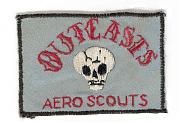Nope, I can't claim credit for invention of the Chimps and the Gorilla. That credit belongs to this guy, whose post #70 (13 Nov 2008) can be found here; and who said:Thank you for the acknowledgment of my imagination; an accolade from the creator of the Chimps...
I liked this zoo example then and still do - gets down to the basic equation, without evasion and escape.That does not mean that we need to continue our current approaches and 'strategies.' No one messes with 600 pound Gorillas -- unless the gorilla proves himself so utterly lacking in agility that he can be annoyed to distraction if not defeated by a young chimpanzee...
That's where we are. If I weighed 600 pounds, I'd stay out of the Chimps cage but if one got close to me, I'd just kill him. Other than that, I'd leave them alone if they left me alone. Some of them -- not most -- would be likely to respond by standing off at a distance and throwing whatever came to hand. Not a prob; I can throw also -- and bigger stuff, harder -- and should be willing to prove that to them at the slightest provocation. They'll soon quit...
As to the rest of your "Counter factual?", I'll be back after a little bit of simian contemplation.












Bookmarks